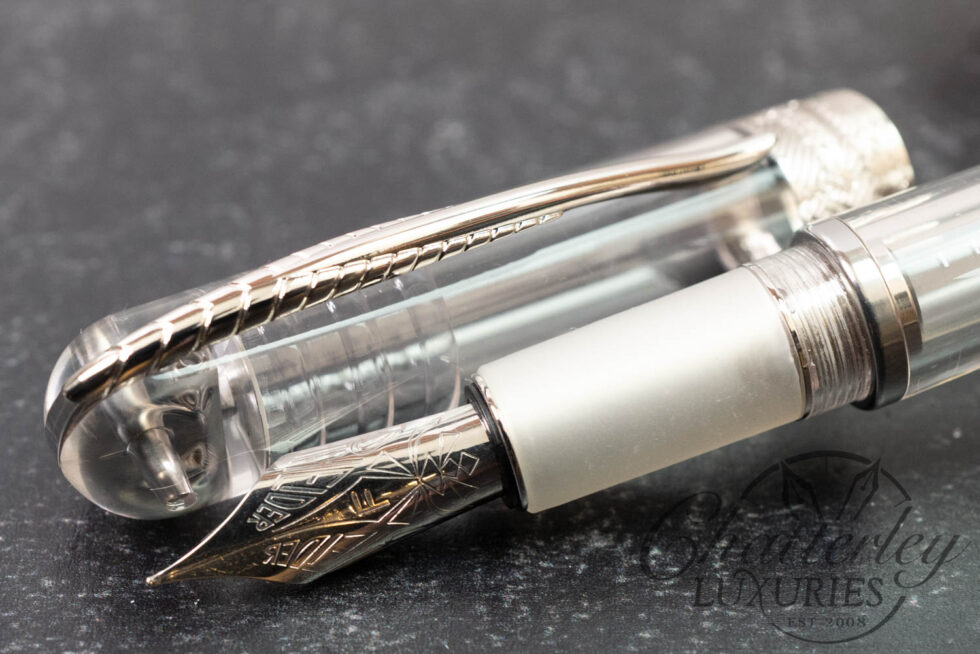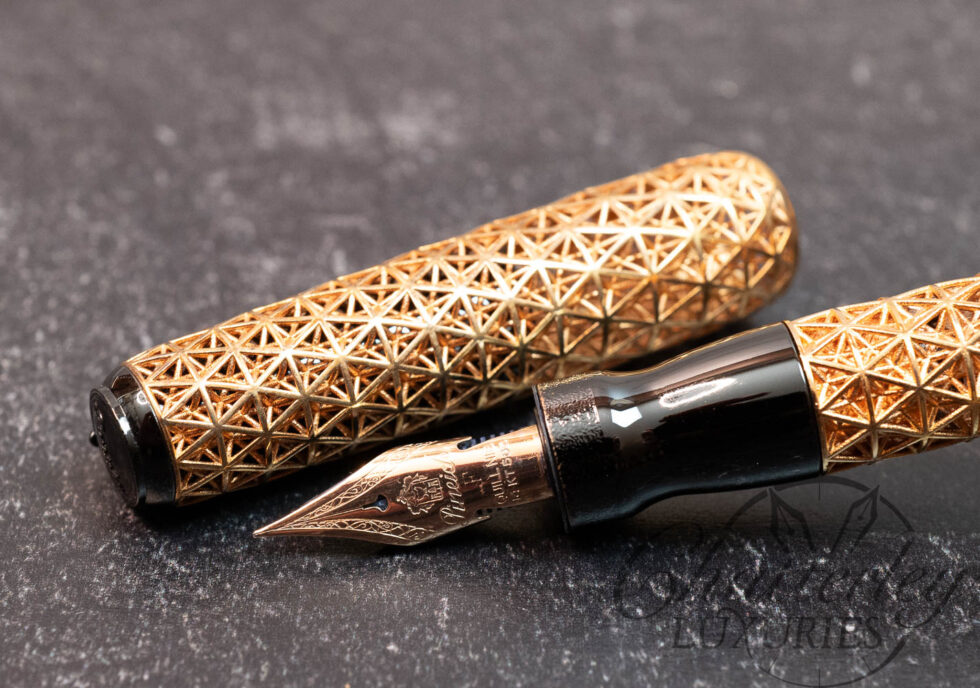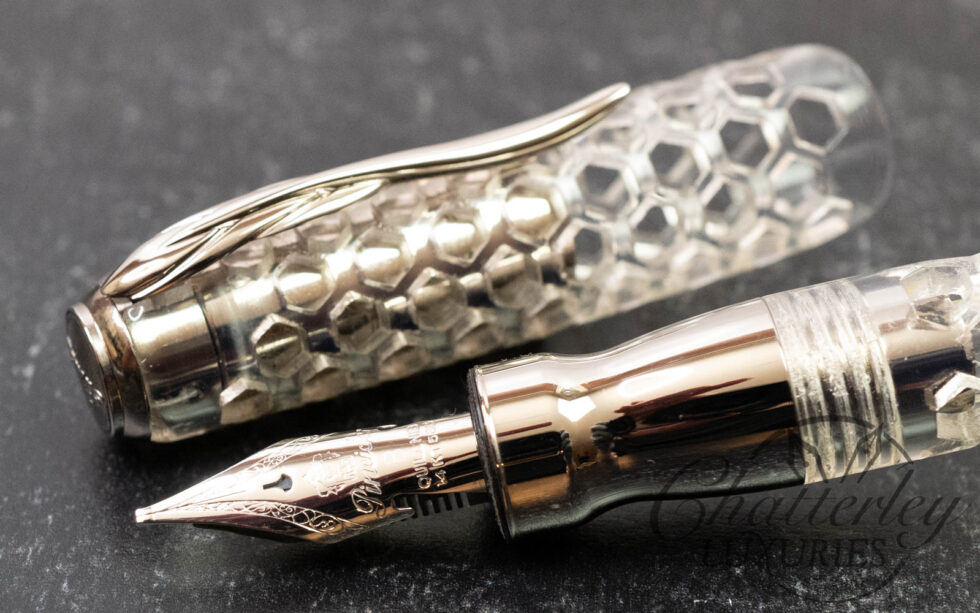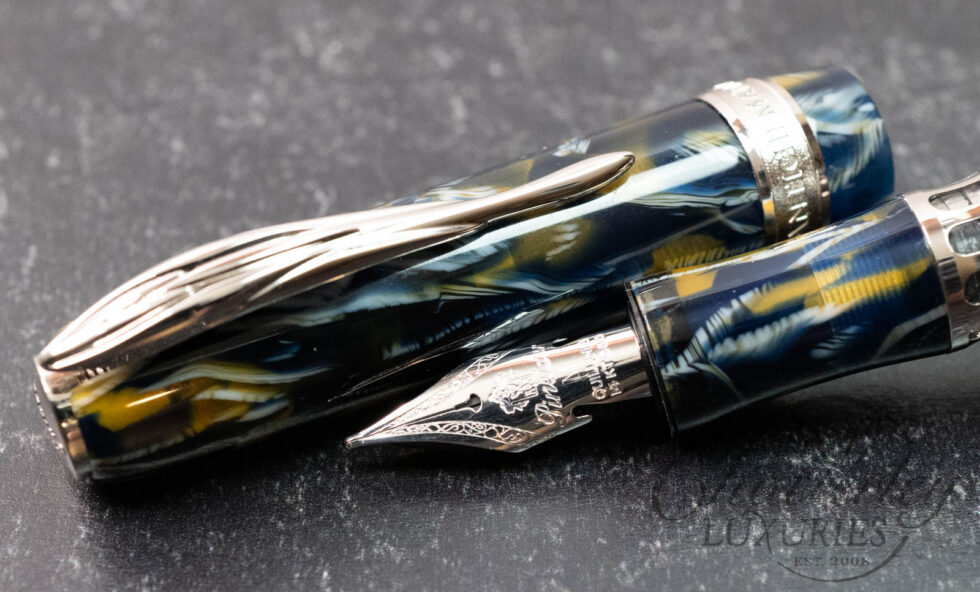Pineider La Grande Bellezza Ancient Materials Limited Edition Fountain Pen Collection
Contact us for our Chatterley Loyalty pricing, info@chatterleyluxuries.com
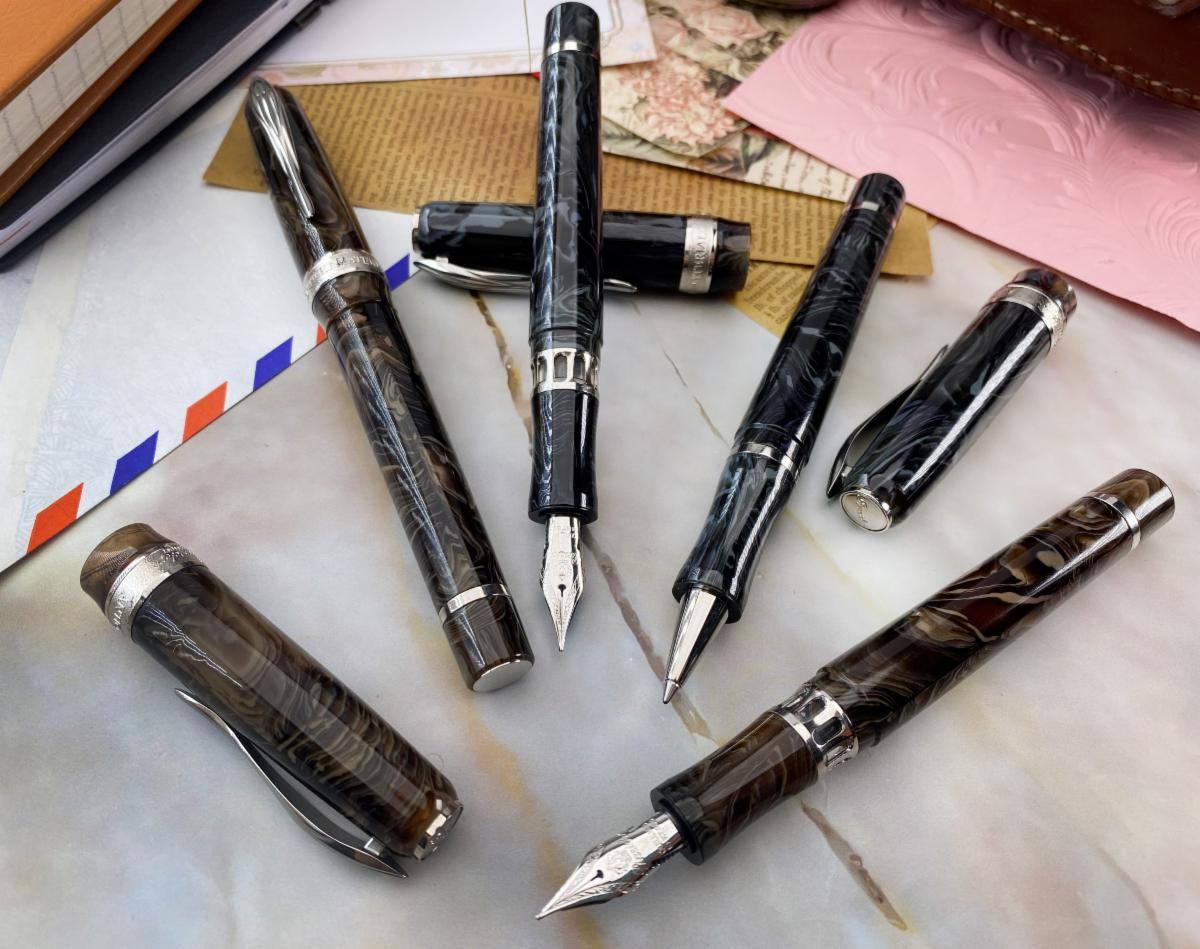
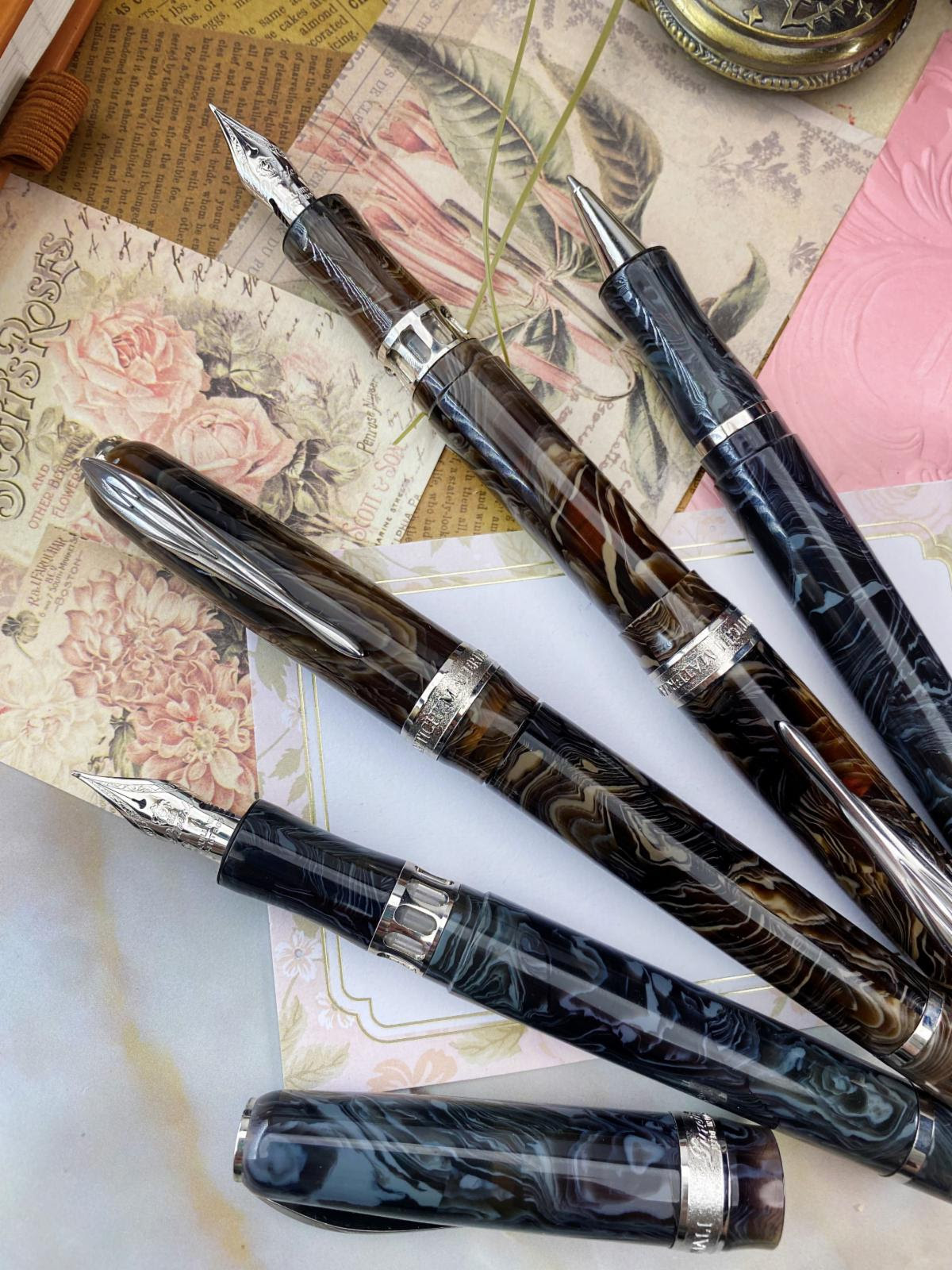
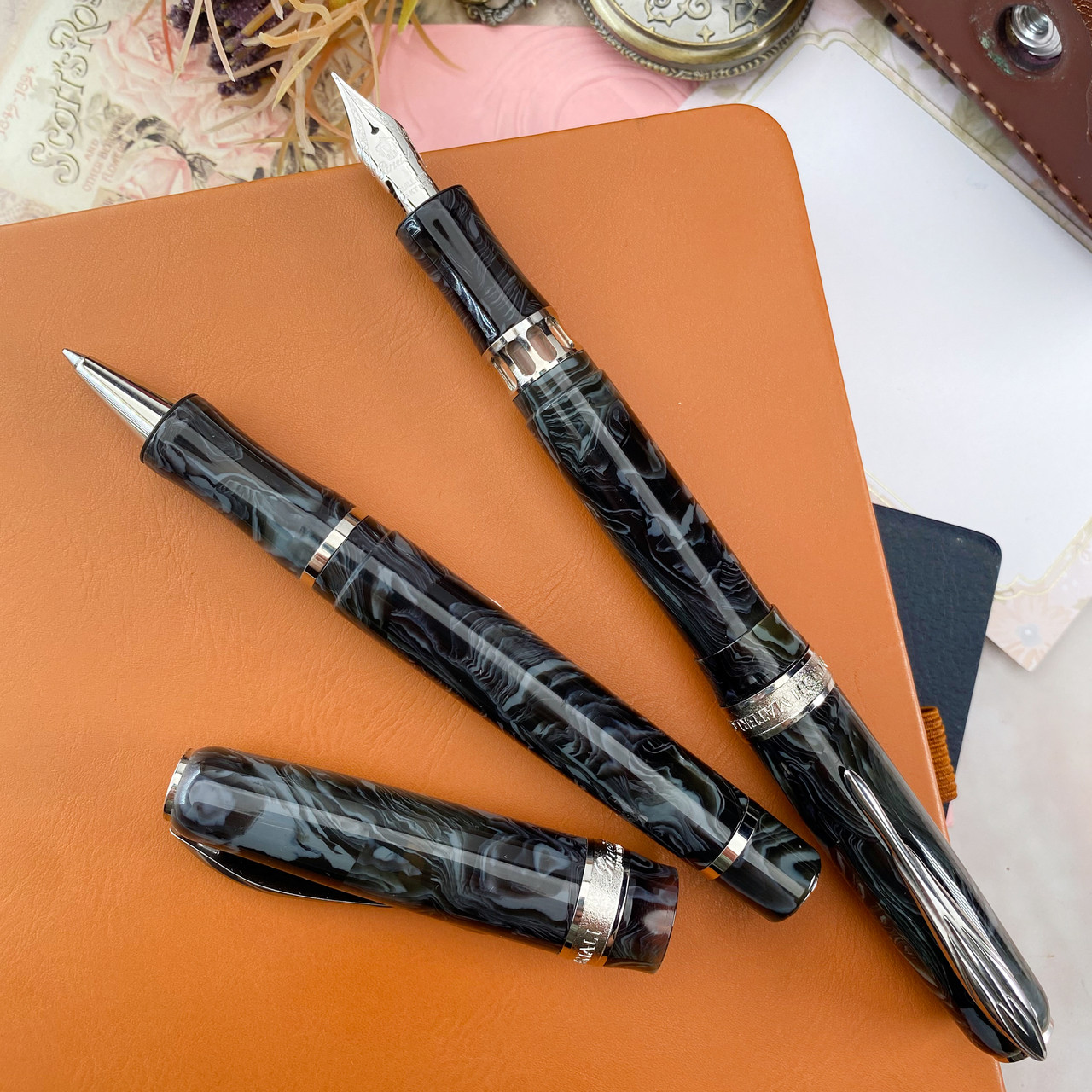
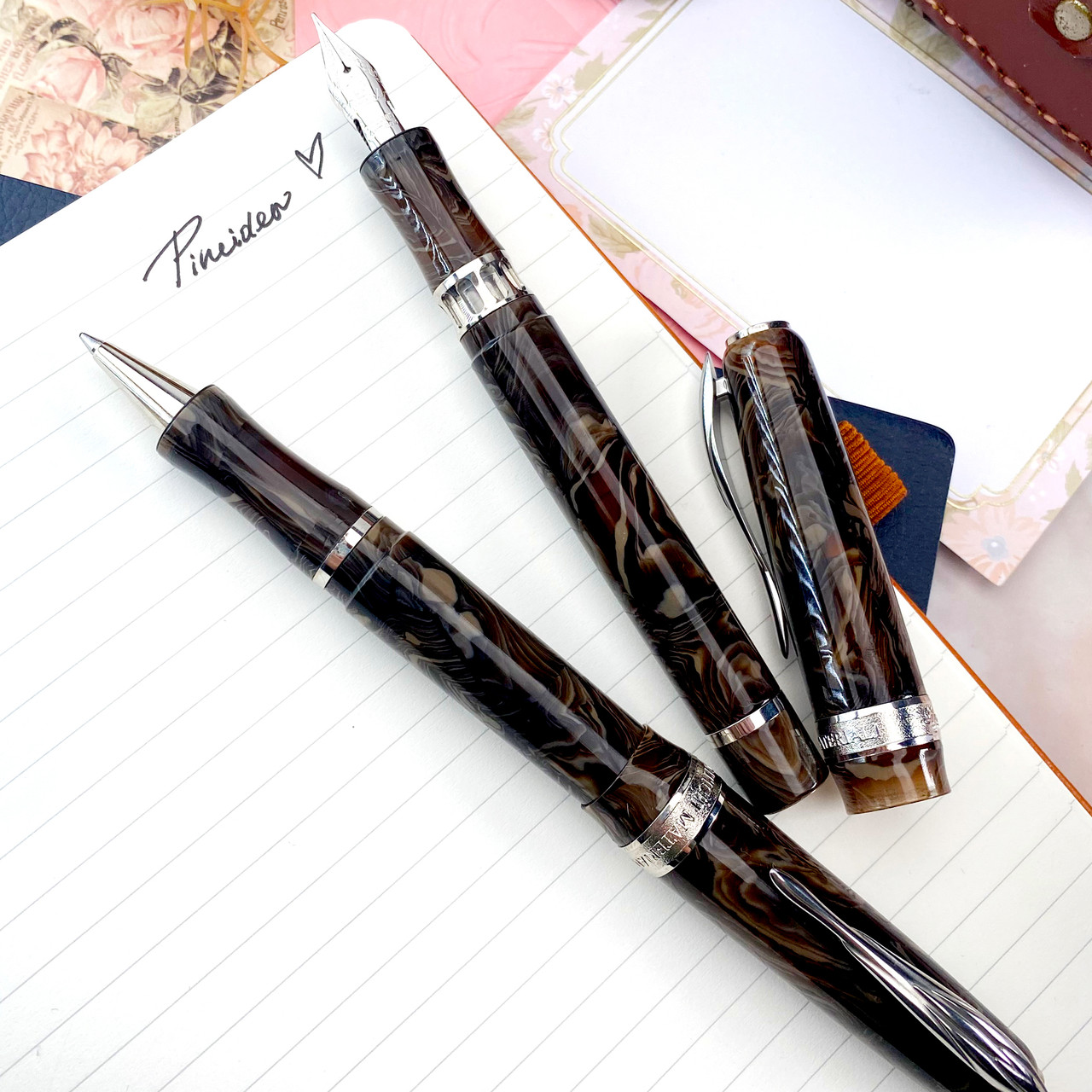
Pineider pens by Dante Delvecchio…
Celluloid, is a magic word for any pen collector, which brings to mind not only the golden age of writing instruments but also the transition spanning from the 1990s to the present day.
The discovery of a stock of materials for eyewear, is for a pen company, how to win the lottery, because, the materials for glasses were mainly non-flammable celluloid, bio plastic, nylon and acrylic.
All known types of celluloid, Piralina, Rodolite, Permanite, Rhodoid, just to name a few, are all derived from the original formula of the Hyatt brothers: cellulose with the addition of a plasticizer that consolidates its structure. Cellulose is made from cotton, which guarantees its purity, and not from wood as you might think. The plasticizer, in the various formulas can be alcohol, acetic anhydride or plasticizers of natural origin (bio celluloid).
Regrettably, the materials suitable for eyewear are often too thin for crafting writing instruments unless one employs long-forgotten techniques typical of pen production from the 1920s and possesses the expertise required to do so.
Pineider was able to successfully turn an old supply of materials into beautiful writing instruments that are made with the same production techniques utilized in the roaring twenties and with identical characteristics.
Throughout history, four primary techniques for creating celluloid pens have been recognized in pen literature: spiral wrap (spiral winding), funnel straight (funnel closure), flat mold (two-part seed press), and solid block methods. Certain techniques allowed for material conservation and consistent decorative patterns across the pen’s entire 360 degrees, avoiding a side effect commonly seen in pens carved from solid blocks.
Finally, let us not forget the curing time, which is a necessary maturing process to stabilize the material and complete the drying phase. This process typically spans from 3 to 8 months, rendering the material workable, followed by an additional month during part fabrication.
Celluloid and its family exhibit exceptional qualities, such as unparalleled durability, as exemplified by historic advertisements from the twenties, showcasing pens being thrown from planes or into the Grand Canyon to highlight this virtually unbreakable attribute. Moreover, the richness and diversity of colors offered by celluloid remain unmatched by any other material.
Originally employed to imitate natural materials like tortoise shell or ivory, celluloid designers have unleashed their creativity, producing thousands of diverse effects, limited only by their imagination.
La Grande Bellezza “ANCIENT MATERIALS”
Limited Edition 288 pens per color fountain pen or roller
Material: Celluloid
Nib: Quill nib in 14 kt gold 585 hyperflex
Clip: Sea steel activated feather
Closure: Twist magnetic lock
Filling: Piston Filler
Packaging: Pineider wooden and leather box
MSRP $1118

